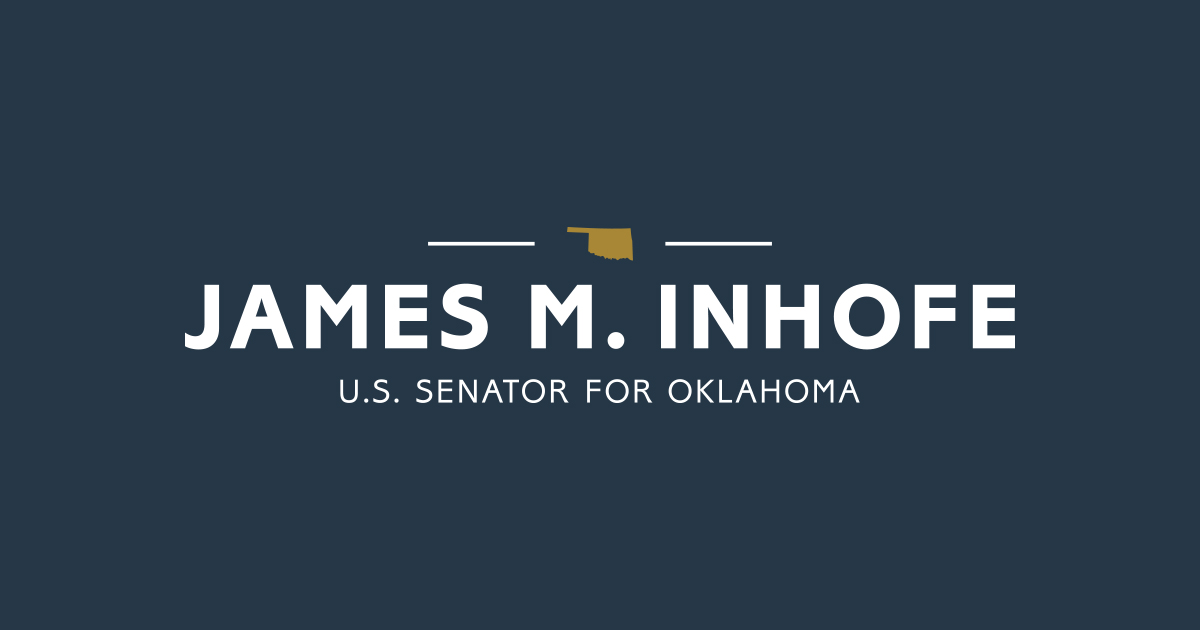Source: United States Senator for Oklahoma James Inhofe
Today, U.S. Sen. Jim Inhofe (R-Okla.), ranking member of the Senate Armed Services Committee, questioned the nominees for four key Department of Defense civilian positions.
Witnesses included: Milancy Harris, nominated to be Deputy Under Secretary of Defense for Intelligence and Security; Dr. Radha Plumb, nominated to be Deputy Under Secretary of Defense for Acquisition and Sustainment; Brendan Owens, nominated to be Assistant Secretary of Defense for Energy, Installations and Environment; and Dr. Laura Taylor-Kale, nominated to be Assistant Secretary of Defense for Industrial Base Policy.
Inhofe: Thank you, Mr. Chairman. Dr. Plumb, you spent time recently working at both Facebook and Google, and Ms. Harris, you also spent time working at Facebook and on the oversight board of Facebook. Can you both please describe your work at these companies and what involvement you had, if any, in the development of the content moderation policies or in decisions to moderate content? Let’s start with Dr. Plumb.
Plumb: Ranking Member Inhofe, my role, similar to roles throughout my career, at both companies was focused on applying data and analysis to help identify problematic issues like, at Facebook, child pornography, ISIS recruiting content. At Google, my roles focused on applying data and analysis to improve business operations to address issues like copyright violations and financial fraud and helping make those business processes more effective and efficient. Overall, I was focused on the research and analysis pieces rather than on content moderation policy or content moderation decisions.
Inhofe: Ms. Harris?
Harris: Ranking Member Inhofe, thank you for the question. My role at Facebook was focused on designing a way to bring outside experts in to look at Facebook’s content decision. I did not work on content moderation actions or the policies. I was focused on the operations issues to facilitate those outside expert reviews.
Inhofe: Alright. And Mr. Owens, in your advanced policy questions you stated that and this is a quote, “in many cases the Department’s installation energy projects should ‘not only bolster resilience but also enhance conservation, increase energy efficiency, and implement clean, low-carbon energy solutions.’ Now, I believe that the number-one priority of the Department of Defense is lethality. I’d ask you if you agree with that. And secondly, do you think that there is a point where strategic and economic costs outweigh potential environmental benefits?
Owens: Ranking Member, thank you very much for the question. I absolutely agree that DOD’s number-one priority is to provide military forces to deter war and ensure our nation’s security. A hundred percent. In terms of how I would characterize the joint benefits that investments in resilience and efficiency can provide, I absolutely see that those two things need to be considered together. They need to be balanced. And then they need to make sure that they are doing, everything we are doing from an efficiency standpoint or from a resilience standpoint is supporting lethality.
Inhofe: So, you, repeat then the two areas that you feel should be hand in hand.
Owens: Efficiency, well I think it’s more of a triad. Efficiency, resiliency and lethality.
Inhofe: On somewhat of an equal basis?
Owens: I think I said them in the exact opposite order of the way that they would be precedent for DOD.
Inhofe: OK. Lastly, Ms. Harris, you’ve served as the Deputy Assistant Secretary of Defense, Irregular Warfare and Counterterrorism since February of 2021. Can you describe the role that you played in planning for the withdrawal from Afghanistan last year?
Harris: Ranking Member Inhofe, thank you for the question. As you correctly state, I work for the Office of the Under Secretary of Defense for Policy. I’m one of a number of deputy assistant secretaries of defense with responsibilities related to our mission in Afghanistan. My role is focused primarily on CT policy and the employment of special operations forces. So with regards to our withdrawal for Afghanistan, those were the primary areas in which I was involved.
Inhofe: Thank you, Mr. Chairman.
